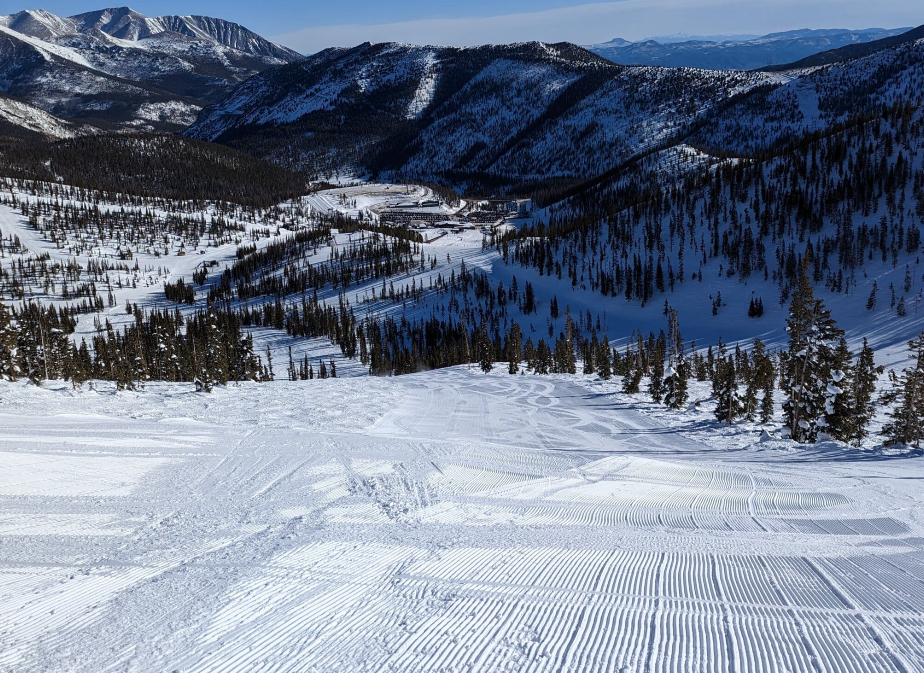Skiing and snowboarding in North America have been taken over by corporate greed. Two companies—Vail Resorts and Alterra Mountain Company—now control the majority of ski resorts, turning what was once a community-driven sport into an overpriced, overcrowded, and soulless industry.
Day pass prices at Park City have jumped 263% since 2011, while resorts become more crowded, meals get more expensive, and the authentic ski culture is being wiped out in favor of corporate profits.
The Rise of Vail & Alterra: A Monopoly in the Mountains
Skiers and snowboarders who have been on the slopes for more than a few years have felt the change. Vail Resorts and Alterra have taken over dozens of ski areas, creating a duopoly that dominates the industry.
• Vail Resorts owns 41 resorts worldwide, including Vail Mountain, Breckenridge, Park City, and Whistler Blackcomb.
• Alterra controls 17 major destinations through its Ikon Pass, including Aspen, Mammoth, and Jackson Hole.
Their business model? Buy up resorts, force skiers into season passes (Epic & Ikon), then exploit them once they’re inside. The cost of a single-day lift ticket at Park City has soared from $96 in 2014 to $269 in 2024—a 263% increase that far outpaces inflation.
The result: Skiing has become a luxury sport, no longer accessible to the passionate locals and working-class families who built the culture. Instead, it caters to an elite class of wealthy tourists, while the average skier faces long lift lines, overcrowded slopes, and outrageous costs.
Crowded Slopes, Empty Wallets
The Epic Pass and Ikon Pass were marketed as a way to make skiing more affordable, but instead, they’ve created chaos at resorts.
At a typical Vail-owned mountain on a weekend, you’ll experience:
Hour-long lift lines
Trails packed with beginners & reckless skiers
Fresh powder gone by 10 a.m.
A dangerous mix of overcrowded slopes & inexperienced riders
Rather than improving infrastructure to manage these crowds, Vail has focused on cutting costs:
• Staffing is at a minimum
• Lift maintenance is neglected
• Customer service is practically nonexistent
And if you get hungry? A $25 burger and a $15 beer are your options—stadium food at Michelin-star prices.
Destroying Local Culture
Beyond just the financial squeeze, Vail’s corporate takeover has crushed the culture of ski towns.
Mountain communities once thrived on a tight-knit group of locals who lived, worked, and skied in their towns. But as Vail drives up housing costs and attracts wealthy vacation homeowners and Airbnb investors, locals are pushed out.
• Affordable housing is gone.
• Resort workers must commute over an hour—if they can even afford to live nearby.
• Independent ski shops, rental stores, and bars are disappearing.
Instead of ski bums and die-hard riders, resorts are now filled with finance bros in Arc’teryx jackets and hedge fund managers on powder boards.
Vail’s Model: Profits Over People
Vail operates under a “maximize shareholder value” business model, prioritizing executive salaries and stockholder dividends over the actual ski experience.
Take Rob Katz, Vail’s former CEO, who cashed out $118 million in stock options in 2019, all while:
• Raising season pass prices
• Cutting employee benefits
• Reducing guest experience investments
Every time Vail acquires a new resort, the same destructive cycle plays out:
Cut staff and reduce operating costs
Increase season pass and lift ticket prices
Offer less to customers while maximizing profit
Vail has perfected a business strategy that traps skiers in their system, degrades the experience, and forces them to keep paying because they have no alternative.
Can Skiing Be Saved?
The ski community is at a crossroads. Independent resorts are disappearing as Vail and Alterra continue buying up mountains.
But there’s hope. Some smaller, independent resorts are holding strong, refusing to sell out:
• Bridger Bowl (MT)
• Whitefish Mountain (MT)
• Mad River Glen (VT)
These resorts still offer affordable lift tickets, manageable crowds, and an authentic ski experience.
Skiers and snowboarders are beginning to fight back:
• Grassroots movements are organizing against Vail’s monopoly.
• More riders are boycotting Vail resorts in favor of independent mountains.
• Co-op models & independent ski passes like the Indy Pass are gaining popularity.
Time to Take Back the Mountains
Skiing and snowboarding were once about freedom, adventure, and a love for the mountains.
Vail and Alterra have turned it into a luxury product—but the soul of skiing is still out there. If skiers support independent mountains and local ownership, there’s a chance to restore the sport before it’s too late.
No comments yet.







